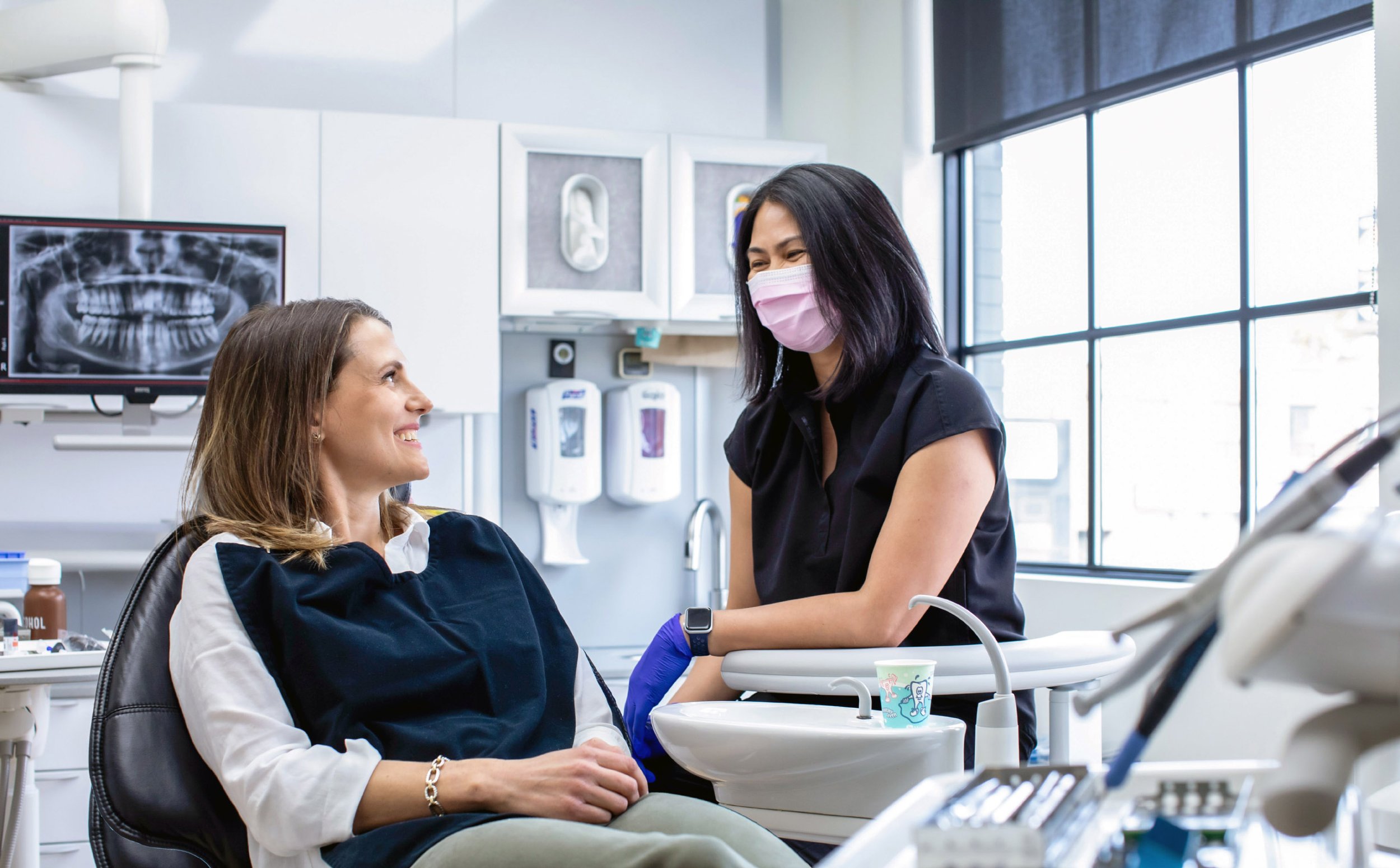
Frequently asked questions.
Ask Us
Maintaining dental health has two main components — at-home dental hygiene and professional cleanings and examinations. Simple maintenance of your dental health can prevent complications such as tooth loss, as well as the need for restorative or cosmetic dentistry in the future. Let’s try to answer some common questions below but if you have any questions not answered here, please reach out to us.
How can I prevent tooth decay and gum disease?
Good oral hygiene starts at home, though it needs to be supplemented by regular visits to McDonough Dental for regular maintenance. Steps you can take to prevent tooth decay and gum disease include:
Thorough brushing
Proper flossing
Regular dental visits
How does fluoride help prevent tooth decay?
Fluoride helps reverse and prevent tooth decay in three ways:
Promoting Tooth Remineralization
Helping Teeth Become More Resistant to Tooth Decay
Inhibiting Oral Bacteria’s Ability to Create Tooth-Attacking Acids
What causes sensitive teeth?
Sensitive teeth can be caused by a range of factors. The porous part of the tooth, called dentin, is the region that registers pain, and dentin can become exposed due to:
Fractured or chipped teeth
Teeth injured by clenching or grinding
Receding gums caused by gum disease or improper brushing
How can sensitive teeth be managed?
Pain from sensitive teeth often comes and goes, but if you experience constant pain, you may have a more serious problem.
There are many effective treatments for sensitive teeth, including:
A soft-bristle toothbrush to prevent gum irritation
Toothpaste designed to insulate the nerve that registers pain
A fluoride rinse or gel
If you have sensitive teeth, visit McDonough Dental to discuss your symptoms. We can help determine the cause of your pain and develop a course of treatment.
How do I keep my child’s teeth healthy?
Following a few simple guidelines can help keep your child’s teeth strong and beautiful for life:
Start oral care early
Prevent nursing-bottle mouth
Take your child to the dentist
What is sedation dentistry? How can it help me?
Sedation (sleep) dentistry involves the use of sedative drugs so that patients who fear dental work can avoid the discomfort and anxiety associated with dental visits. With sedation dentistry, patients take a pill about an hour before their dental appointment. They arrive at our office relaxed and able to undergo treatment without feeling any pain or having any memory of the procedure.
If you have avoided getting dental care because of anxiety or fear of discomfort, sedation dentistry may be the ideal solution to allow you to get essential treatment.
